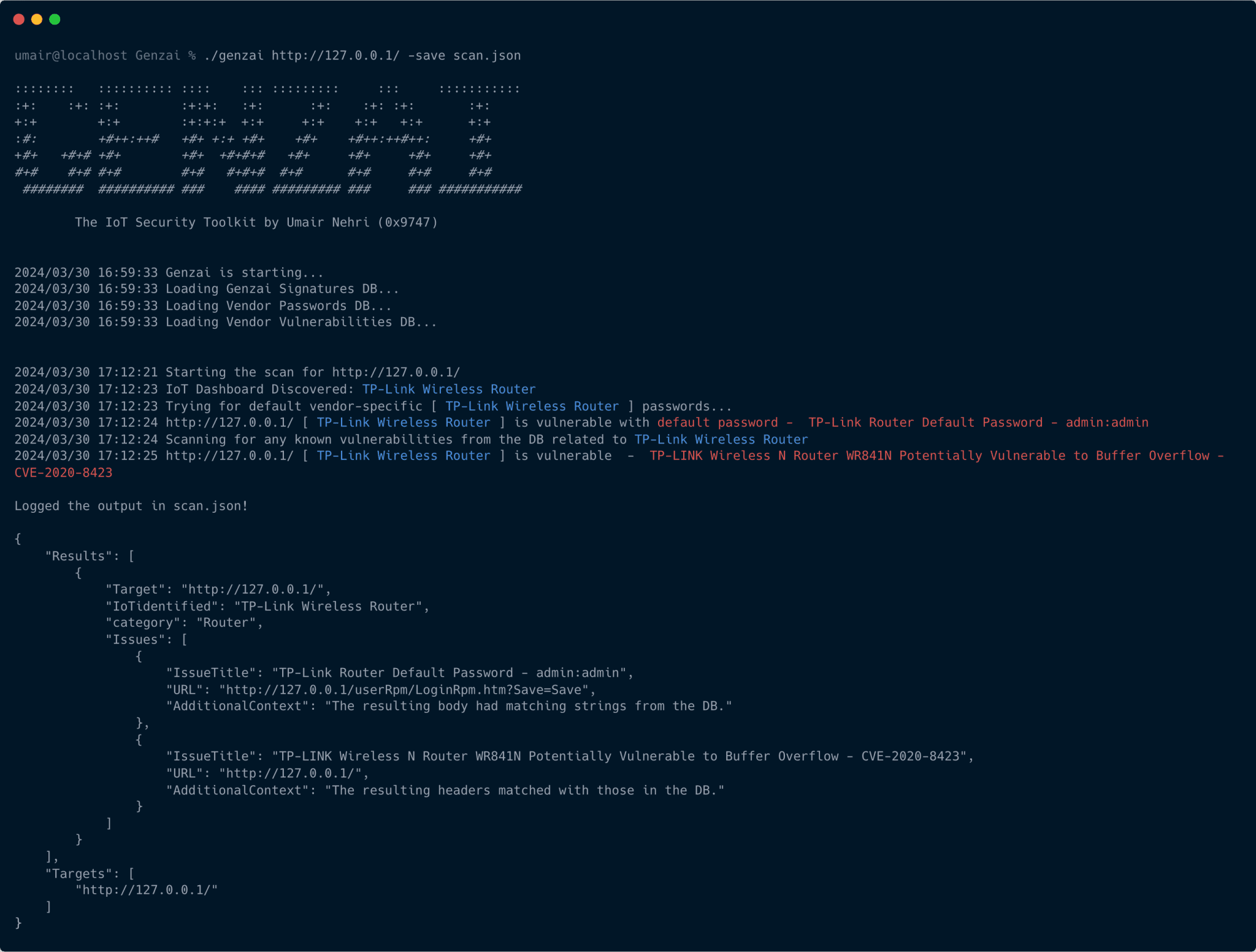
As the number of Internet of Things (IoT) devices continues to rise, so does the urgency to secure these devices. The expanding ecosystem of IoT devices in homes, industries, and public infrastructure offers countless conveniences but also opens up significant attack vectors. With platforms like Shodan allowing users to scan the entire internet for unprotected IoT devices, the risk of cyberattacks has grown. That’s where Genzai comes in.
Genzai is an open-source toolkit designed to enhance the security of your IoT devices. It provides a streamlined solution to track, identify, and secure IoT devices. Its functionality includes IoT device fingerprinting, default password checks, and vulnerability scanning, all in one cohesive tool. Whether for individuals or businesses, Genzai offers an accessible means of securing IoT environments without the need for extensive manual monitoring.
Genzai facilitates proactive identification and mitigation of vulnerabilities in IoT ecosystems through a multi-faceted approach:
1. Device Fingerprinting:
Utilizing a sophisticated fingerprinting engine, Genzai accurately identifies IoT devices based on their web interfaces. This process, analogous to web technology fingerprinting tools like Wappalyzer, enables Genzai to categorize devices into specific classes such as:
- Wireless Routers
- Surveillance Cameras
- Human Machine Interfaces (HMIs)
- Smart Power Controllers
- Building Access Control Systems
- Climate Control Systems
- Industrial Automation Systems
- Home Automation Systems
- Water Treatment Systems
This granular classification forms the foundation for subsequent vulnerability analysis and remediation.
2. Default Password Auditing:
A significant security risk in IoT deployments stems from the prevalence of default credentials. Genzai incorporates an extensive database of vendor-specific default passwords, enabling it to identify devices susceptible to unauthorized access due to unchanged credentials. By flagging these vulnerabilities, Genzai allows administrators to enforce password hygiene and mitigate risks associated with unauthorized access.
3. Vulnerability Scanning:
Genzai’s vulnerability scanning module leverages a curated database of known vulnerabilities associated with specific IoT devices and software versions. This database, continuously updated to reflect the evolving threat landscape, enables Genzai to identify potential security flaws, including:
- Exposed endpoints and files
- Vulnerable software versions
- Exploitable configuration weaknesses
This proactive vulnerability assessment facilitates timely patching and configuration adjustments, minimizing the risk of exploitation.
Genzai gained recognition at Black Hat Asia 2024 and is set to present at Black Hat Europe 2024. As an open-source project, Genzai is accessible to anyone seeking robust, adaptable IoT security. By hosting its code and documentation on GitHub, Genzai encourages community collaboration, continuous improvement, and widespread adoption.